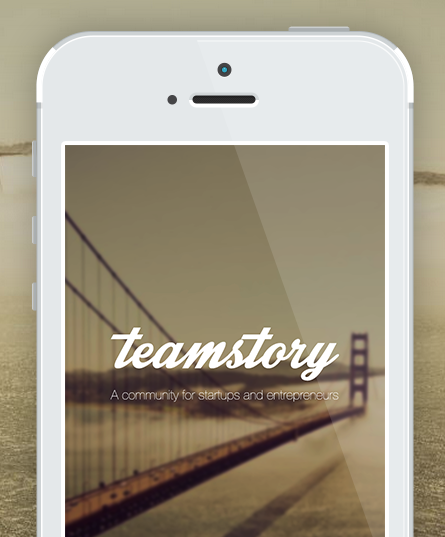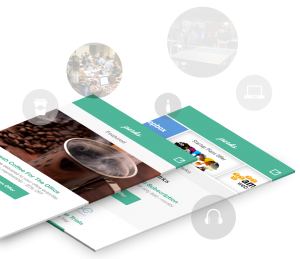“But what I do know is this startup journey is long, hard as f#!@ and lonely.”
 Teamstory founder Kevin D.H Kim found himself looking around for community in the startup world. The way he sees it, even though we spend a lot of time on Twitter, Facebook, and blogs, there’s very little “real” community. We share the good things or give advice on the easy stuff, but when things really get hard a lot of founders find themselves kinda lonely.
Teamstory founder Kevin D.H Kim found himself looking around for community in the startup world. The way he sees it, even though we spend a lot of time on Twitter, Facebook, and blogs, there’s very little “real” community. We share the good things or give advice on the easy stuff, but when things really get hard a lot of founders find themselves kinda lonely.
With that problem in mind, Kim and his cofounders are building Teamstory as a place for just that kind of interaction.
They’ll be up against some real competition, of course. Facebook, Twitter, and email work pretty well for a lot of entrepreneurs, and some surprisingly real conversations can happen in those forums. And, of course, there’s that “killing it” thing we all have. It will take a real paradigm shift to convince founders to open up and admit their struggles, when so much is riding on confidence in their business.
Check out the Q&A with the Teamstory team below and let them know what you think.
What is your startup called?
Our startup is called Teamstory – A Community for Entrepreneurs and Startups.
What’s the story behind your idea?
As an entrepreneur and a founder myself , I’ve always felt the disconnect within the startup community. Even though there are platforms like AngelList, Gust and F6S, there was no ‘real’ communication between the entrepreneurs and startups. It was all about what’s on the tip of the iceberg – Idea, pitch, fundraising etc. , all the fluff and the good stuff. Then I began to wonder… what about the other side? the good, the ugly, and the bad about your journey, your moments throughout your journey. I kept searching for a ‘real community’ for startups and entrepreneurs but haven’t be able to find one. So we decided to create Teamstory. A picture-based community where entrepreneurs and startups can capture, share and discover the moments in their journey with like-minded people.
Who are the founders, and what are their backgrounds?
Kevin D.H Kim (24) / Tobok Lee (24) / Freddy Hidalgo-Monchez (25) We’re all entrepreneurs, builders and designers who has experience in multiple startups and tech-companies. We are from Waterloo, Toronto, and Montreal.

Where are you based?
We are based in Toronto, Canada
What’s the startup scene like where you are based?
It is a growing tech-hub of Canada alongside with Kitchener-Waterloo. There are big and successful startups in the scene: Shopify, 500px and Bitstrips etc. And it’s beginning to grow more and more with talents.
What problem do you solve?
Teamstory is trying to solve the disconnect within the community by making interactions and discovery effortless and more transparent
We think that it’s actually a bit late that someone is trying to create a community around the startups. But it’s time to shift the thinking to more of a collaborative community to accelerate startup environment globally.Why now?
What are some of the milestones your startup has already reached?
We’ve just surpassed 200 beta signups and gathered interests from business partners within a month. We’re seeing some great interest from the entrepreneurs and startups around the world.
What are your next milestones?
Our next milestone is the closed-beta which will launch in late February. We want to make the product better with our early adopters and fully launch with a great product in the spring 2014.
Where can people find out more? Any social media links you want to share?




